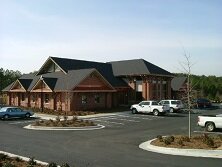Advanced Diagnostics to Pinpoint Even Complex Digestive Disorders
New technologies have improved the ability to see the smallest details of the digestive tract for a faster, more accurate diagnosis of even multifaceted disorders. These include traditional procedures such as upper and lower endoscopy, colonoscopy and liver biopsies as well as:
Advanced Endoscopic Procedures:
- Capsule Endoscopy. A pill-sized video camera travels through the digestive tract, recording images on a transmitter worn on a belt. The images let physicians view the small intestine, an area of the body that’s difficult to see with conventional endoscopy.
- Double Balloon Endoscopy. Uses novel technology to provide detailed observations and treatment of the small intestine, an area that is difficult to access with traditional endoscopy.
- Endoscopic Retrograde Cholangio Pancreatography (ERCP). A specialized endoscopic procedure that uses injected dye and X-rays in order to identify problems in the gallbladder, bile ducts or pancreas. Gallstones or blockages of the bile duct may be removed during the procedure, eliminating the need for major surgery.
- Endoscopic ultrasound. This test uses high frequency sound waves to create detailed images of the upper and lower digestive tract and the pancreas, liver and gall bladder to identify problems or obtain tissue (biopsy or needle aspiration) for diagnosing cancer.
- Esophagogastroduodenoscopy (EGD). An endoscopic procedure in which a physician looks inside the esophagus, stomach and small intestine with a flexible tube to which a camera is attached.
Advanced Motility Procedures
- BRAVO® pH Monitoring. A capsule is attached to the lining of the esophagus to measure acidity and transmit data to a receiver worn on a belt. The receiver collects 48 hours of pH data, allowing physicians to understand acid reflux and design a personalized treatment plan.
- Breath Test for Bacterial Overgrowth. This test identifies the overgrowth of bacteria that can disrupt the digestive process in the small intestine.
- Breath Tests for Lactose or Fructose Malabsorption. These tests detect the inability to digest lactose (milk sugar) or fructose (fruit sugar) that are commonly consumed in our diet.
- High Resolution Anorectal Manometry. The gold standard for evaluating anal and rectal muscle and nerve function, determining how people sense stool in the rectum and assessing anal muscle function in patients with constipation and fecal incontinence. Provides higher quality images and information than traditional anorectal manometry.
- High Resolution Esophageal Pressure Topography (HREPT). A new test that studies esophageal peristalsis and the upper and lower esophageal sphincter functions related to acid reflux or difficulty swallowing.
- Impedance pH and Manometry. Measures both acid and non-acid reflux and helps physicians assess esophageal function under different conditions.
- Magnetic Evoked Potentials. Provides information on the integrity of translumbar and transcranial nerve connections between the spinal cord and the anal and rectal muscles as well as information on anal and rectal sensations.
- SmartPill GI Monitoring System. A capsule-based procedure that helps physicians assess upper and lower gastrointestinal transit and motility, determine how food moves through the body, and evaluate disorders such as delayed gastric emptying (gastroparesis) and chronic constipation.
- 3D Anorectal Ultrasound. An ultrasonic test to gather clear images of the lower bowel, anus and anal sphincter, particularly before or after surgery.
- Pudendal Nerve Conduction Velocity. An electric test used to detect nerve problems following damage to the pudendal nerve that may affect bowel control and movement.
- 24-hour Ambulatory Colonic Manometry. Measures the pressure of activity or muscle contractions in the large intestine in order to determine how well the colon is functioning.
- 24-hour Ambulatory Small Bowel Manometry. Provides information about the muscle activity of the stomach and small bowel to help identify the cause of gastrointestinal malfunction.
Don’t just live with embarrassing and painful digestive symptoms. Schedule an online appointment now or call 706-721-9522 to speak to a member of our Care team.





